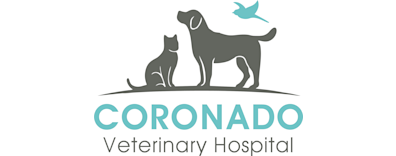Coronado Veterinary Hospital
Fast your pet from 10pm the day before surgery. Small amounts of water are OK until 6am the day of surgery. Failure to adhere to feeding restrictions may result in postponing or canceling your pet’s surgery and anesthesia. Please try to have your pet at the hospital between 7 am and 8am or check with your surgical team for more specific drop-off instructions. Admissions are done at this time regardless of the time that the surgery is performed.
Try to have all appropriate pre-anesthetic lab tests done the week before the surgery if possible. This can be scheduled as a technician appointment. It is possible to have bloodwork done the same day as the procedure, but may cause a delay in your pets surgical start time.
Please make sure to administer any long term medications unless directed otherwise. It is okay to give a small amount of food with the medication if needed. Inform the surgery team the name of the medication and the time your pet received the medication during the check in process. This also includes medications prescribed for the CHILL Protocol.
Report any unrelated illness (e.g. lethargy, poor appetite, vomiting, diarrhea, upper respiratory problems) or change in your pet’s condition to the admitting technician when you come in. It is important to report any drug or food allergy or epilepsy to the admitting technician.
Please select one family member as the point of contact for the day. This person will need to be available to receive phone calls regarding your pet’s progress and make any decisions if necessary. Make sure this person’s voicemail box is empty and allows the team to leave a message if needed.
Bathe/Groom your pet prior to surgery, if possible. Please understand that proper medical protocol dictates that we shave the fur over the surgical site, catheter site, etc. Bathing and grooming will not be allowed for several weeks/months after surgery depending on the procedure performed.
Please take all personal items, collars, leashes, and blankets home with you. Personal items for your pet are allowed provided they do not present a safety hazard for your pet. You must understand that we cannot guarantee the return of these items. If they become soiled they will go into general laundry, which is bleached, and if they get damaged they will be discarded.
We know that this is going to be a stressful day for you. Please be patient. Our first obligation is to the health and safety of your pet.
Most pets will be prescribed the CHILL Protocol prior to surgery check in. We have found utilizing this protocol enables the veterinarian to use less anesthesia/sedation medications with smoother outcomes. Our goal is to make this as fear free and stress free for your pet, giving you peace of mind and creating a better overall experience.
You will be called by the surgery team after your pet has recovered from anesthesia. It is not possible to know exactly what time your pet will go into surgery. We have many patients and the decision as to the order in which patients go into the operating room is based on numerous factors such as the nature of their problem, any anticipated post-operative complications, equipment needed and last but not least, emergencies. Failure to have preoperative testing completed prior to the day of surgery will result in delays.
It is not unusual that we are confronted with a patient that requires urgent life-saving surgery. This delays surgery for all other patients and occasionally means that a procedure has to be delayed until the next surgery day. These situations are unpredictable and are just a part of a “normal” day. Every effort will be made to expedite your pet’s surgery. If there are delays, we appreciate your understanding.
Discharges can take up to 30 minutes and are usually between 2pm-4pm but may be scheduled earlier or later based on special circumstances.
At discharge, make sure you understand the discharge instructions you are given and make sure you have all of the appropriate medications and understand the dosing schedule.
While you are still at the hospital, make a recheck appointment. These appointments fill up quickly so don’t delay.
If you have questions at home, please call us and ask to speak to a technician rather than a doctor. They are trained to answer most of your questions and will consult with the doctor if need be.
